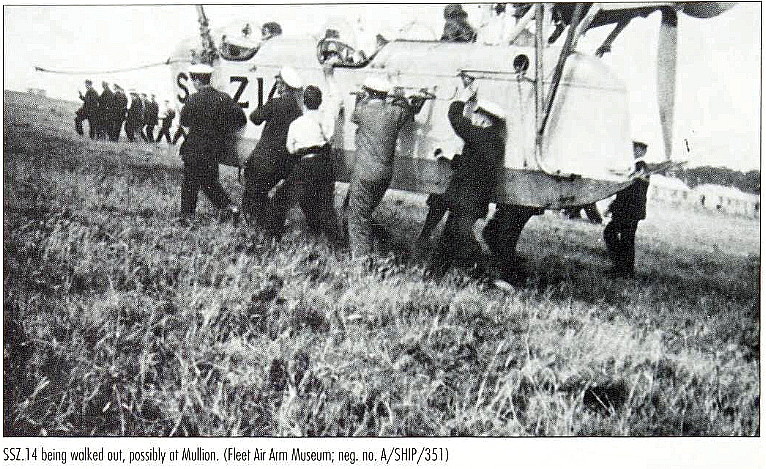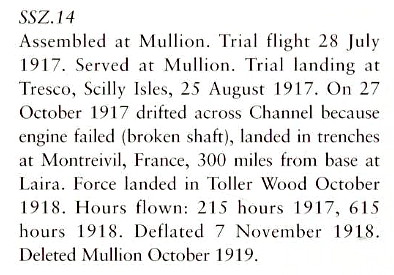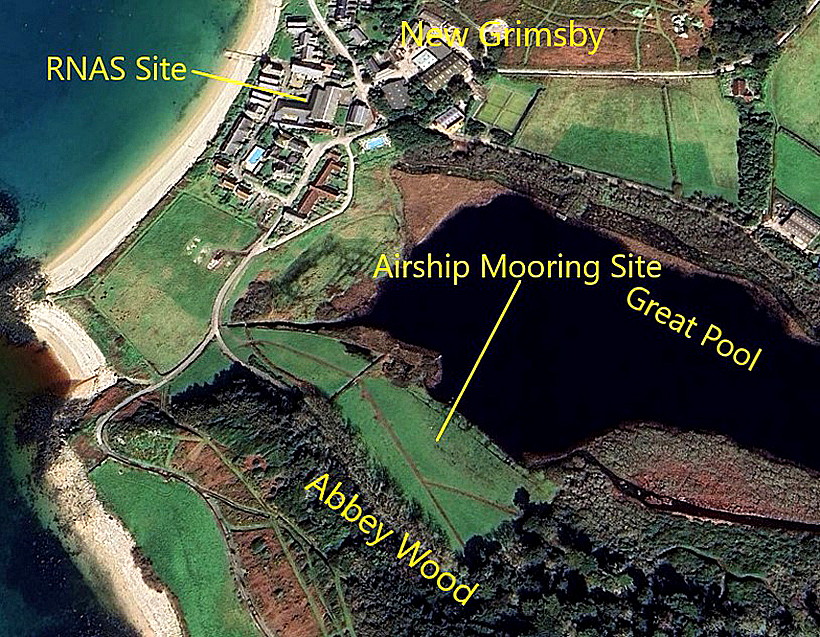Abbey Wood
ABBEY WOOD: Military Airship Moorings (Also known as TRESCO)
Military user: RAF (Sub-Station to MULLION)
Location: On Tresco, near to and just NW of the Heliport, about 0.5nm SE of New Grimsby
Period of operation: 1918
The photo and short article are both from British Airships of the First World War by C E S Mowthorpe. The map and Google Earth © picture have been kindly provided by Mike Holder, a great friend of this 'Guide'.
NOTES: Crewing these low and slow airships for hours on end up and down the British coastal waters in WW1, often in very cold conditions, searching mostly for U-Boats, must have felt to the airmen on board as being the most thankless and futile task they could have been consigned to perform. The rarely even saw one, let alone having the chance to drop their bombs on one. But, they did. To date I have failed to discover reliable data.
It was not until after the First World War had ended, that these aircrews found out, from captured U-Boat crews, just how an effective deterrent they really had been. Reflected in so many ways by the 'V' bomber force crews in the Cold War some fifty years later. These German crews testifield that time and time again, when they thought they had a target ready to be attacked, a scan around the horizon revealed an airship operating in the area. They knew it had not probably seen their periscope wake at such a distance, but they had no option but to dive and head off.
The bombs the airships carried were puny by more modern standards, typically either two 50kg or one 110kg bomb. But still, if a direct hit could be made, enough to badly damage the submarine, or perhaps even sink it? Generally it seems a Lewis machine gun was also provided - but I am not at all sure why?
We'd love to hear from you, so please scroll down to leave a comment!
Leave a comment ...
Copyright (c) UK Airfield Guide



















